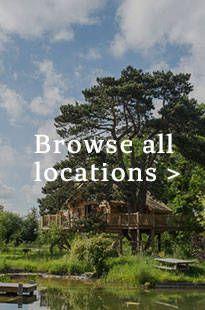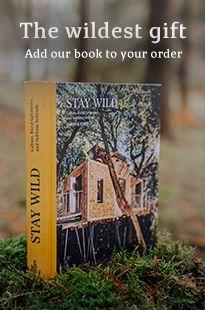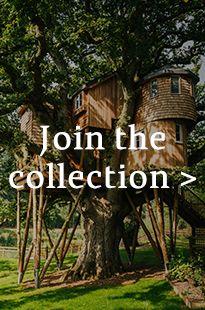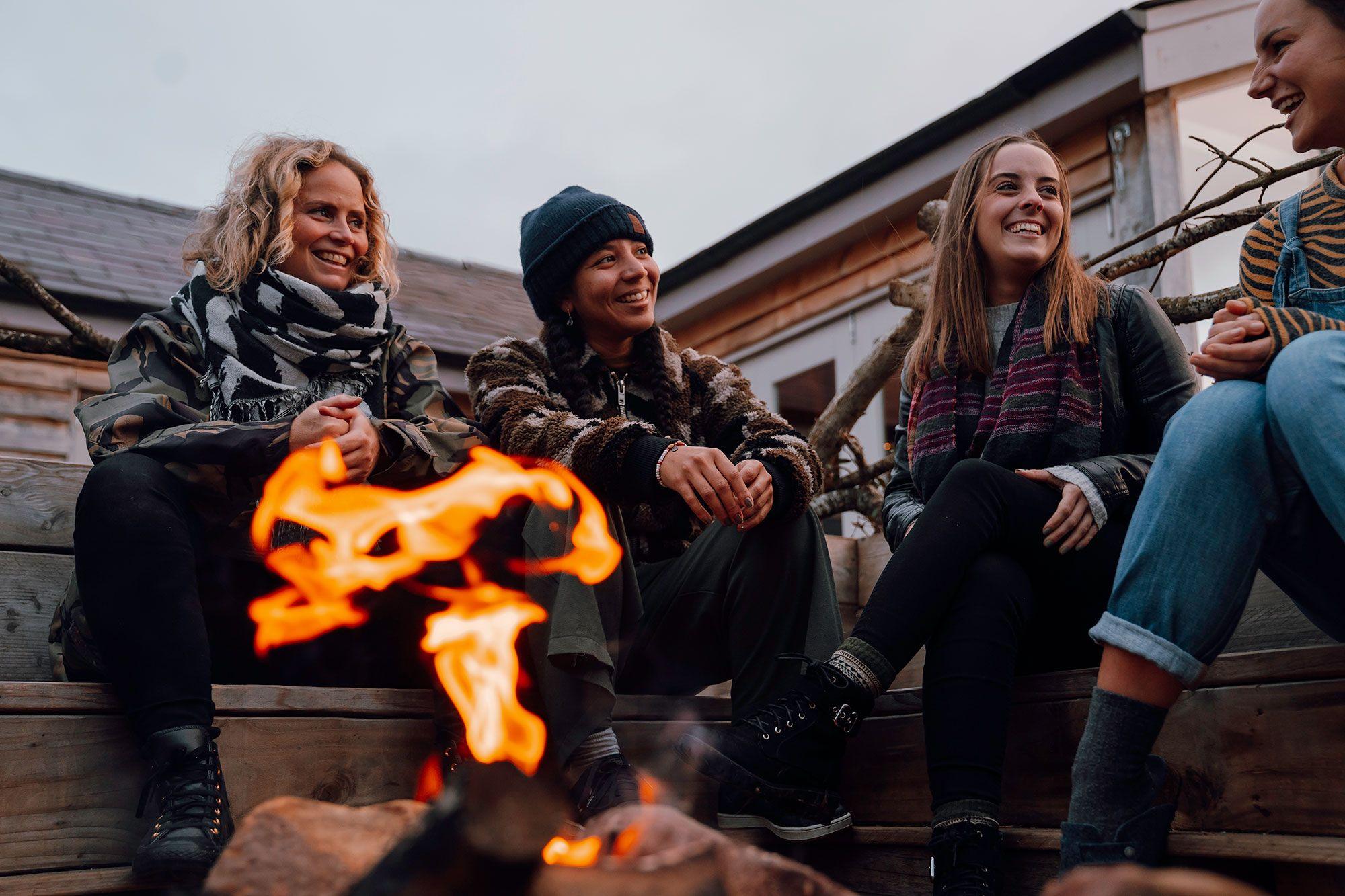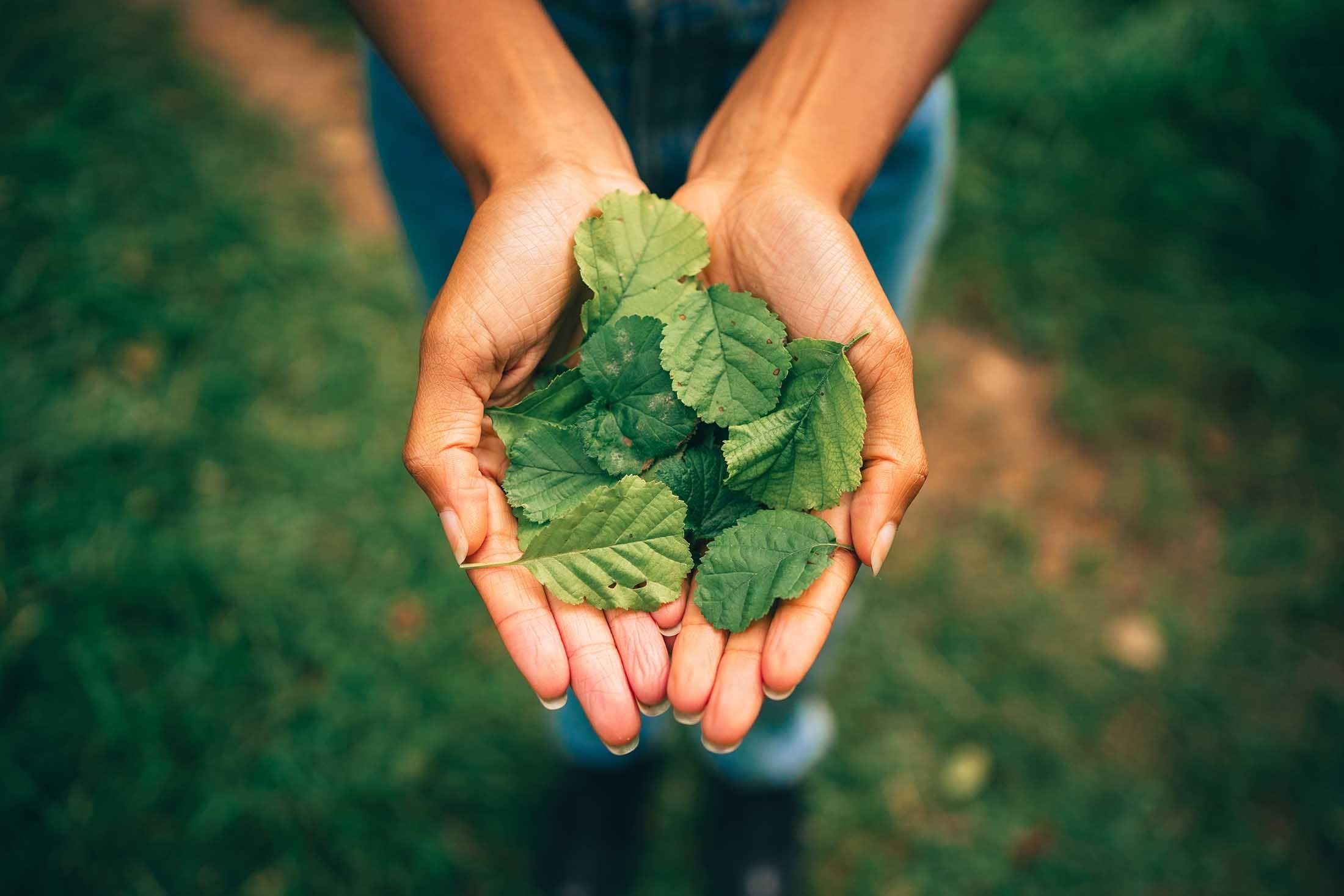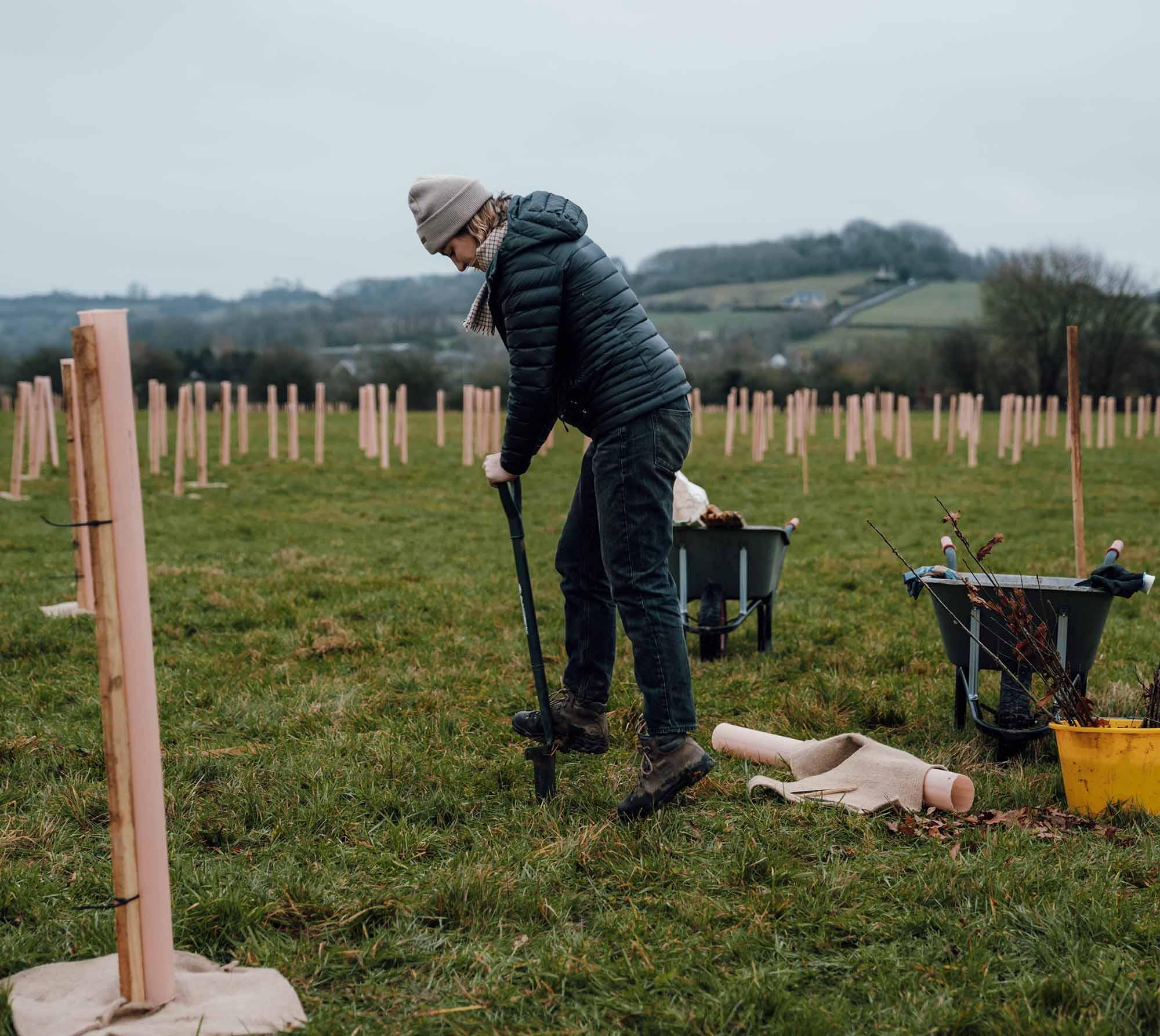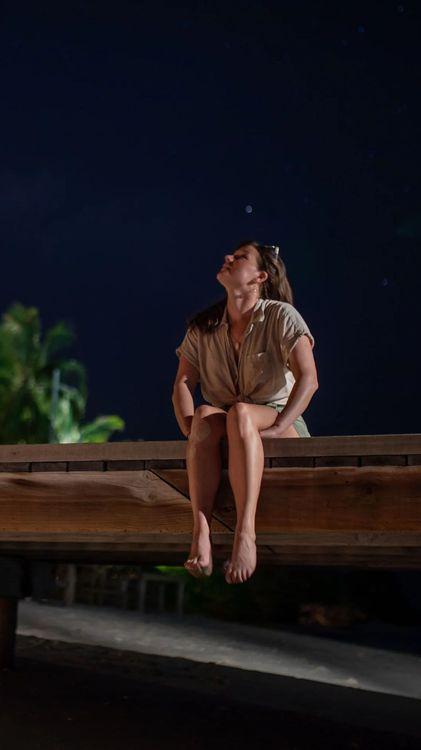
A Life More Wild - Series 3 Episode 9
Dr Becky Smethurst
Astrophysicist, Dr Becky Smethurst on imposter syndrome, movie mistakes and the ultimate sense of perspective.
You often hear people talk about how getting out into nature gives them a change of perspective. But what happens when your profession is nature on the biggest possible scale? Doctor Becky Smethurst is an astrophysicist who studies supermassive black holes and galaxy formation, but says that rather than making her feel small, it does exactly the opposite.
The answer to the question that I mean, I'm researching is, how the black holes grow so big? You know, we just we still don't know that yet. And, and I think it's that deep rooted sort of love and passion for something that, and the fact that you can feel so connected to it in your everyday life on walks like this, you can come out and just look at the stars, and just sort of gaze up to them, that it does keep that passion going.
I'm Chris from Canopy & Stars, and this is A Life More Wild. Join Becky now for an evening stroll around a nature reserve near the South Downs, as she gives a few pointers on spotting planets, explains what the movies get wrong, and dodges a swan.
So, we're just coming into a nature reserve on the edge of the South Downs. And it's just about sunset, the clouds are lighting up, it's absolutely gorgeous. I love this time of day when we're going from day to night, because it just feels like a sigh of relief that the day is done. I know most people wouldn't come out on a walk around about this time. But for me, as an astronomer, it's absolutely beautiful time to come out and just watch the stars just pop out. Despite the fact there's lots of trees around us, which isn't the best for stargazing, I know. I just love that feeling of sort of being both cocooned in trees, but also able to see the sky above view as well. It just feels so magical, catching those little glimpses of the sky through the trees.
Thinking about where my, let's call it an obsession, because that's what it is, with space came from? It was definitely as a kid, I was a 'why child'. And I think everybody knows a 'why child' in their Life. You know, every every, single moment, you're asking why this? Why that. And that natural curiosity never really left me I don't think. It ever really leaves any scientists to be honest. And when I was a kid, I remember seeing this star in the sky that was this reddish colour. And I just remember being fascinated by it. And turning to my parents and saying, what is that? Why does it look a slightly different colour to all the rest of them? And they didn't know the answer. And at the time, I was about an eight-year-old, that shocked me that my parents didn't know the answer to something. I remember sort of having to go to the local library and look it up. And I think we figured out that it was Betelgeuse in Orion. Some of the stars of Orion sort of shoulder, just above Orion's belt and if you look at it, you can just see that it is reddish in colour and a very sort of light polluted skies and in a very dark sky. It's very obvious. And to this day, I look up at that and think that's really what sparked it all, was this curiosity, because after that every Christmas and birthday, it would be space books and telescopes and everything I could get my hands on.
We've come across some swans with a very fluffy Signet, and we're just pausing to let them know we don't mean any harm. We will attempt to walk past them. Always scary, we gave them their space!
So, just paused a little bit by the river here. Just seeing the sort of, peachy-pinky-candy-floss-clouds through the trees all lighting up with the sunset. Just love this feeling at this time of night, it almost feels, the same feeling I get in the autumn when everything sort of, you know calms down after the summer. All of the hiking and the camping and the endless weddings and stuff, and it's finally like you get to breathe and retreat back inside for when the darkness sort of comes. Get to light a fire and get all cosy or light a fire outside and get cosy looking up at the stars. Similar feeling I get for every sort of sunset.
And it's funny because when people think about space, they, they think about it as being such a remote alien thing, but it is nature in it in its own sort of sense. You know, as we walk amongst, you know, trees and grass and gravel and the swans we passed earlier, you know, you think all the processes that created this, you know, created stars and galaxies and black holes as well. It's all the same laws of physics at work. And so, you know, I get the same feeling stood up on top of a mountain overlooking, you know, the, this the countryside as I do, staring up into the stars, it's that similar sort of connection that you feel when you're just being outside, you know, I mean, it is possible to stargaze from inside a house, if you can minimise all those reflections off glass, but there's nothing like just being outside and being under this big open sky.
Some of my best memories have been at work, up a mountain in incredibly remote location away from light pollution, using, you know, professional telescopes that are, you know, tens of metres across, in terms of their mirror. And you essentially, set going for half an hour staring at this one patch of sky for half an hour, to collect as much light as possible. And you think, well, what am I going to do in that half an hour? Twiddle my thumbs, sit inside, scroll on my phone? No, I'm gonna go outside and just look up at the sky for that time, and just take it all in, because I'm literally in such a privileged position to enjoy a skylight that, that is so dark. Because there's so many of us, we live in such a light polluted area, that, you know, you lose that connection to the sky, and we don't have that privilege of, you know, seeing the Milky Way, arching out overhead every night.
So, we've come out of the cocoon of the trees, we're still by the river. Really, the highest thing around us now is lots of reeds. But we've got a much better view of the sky, it's really open. The sun is set now, starting to get into sort of twilight time. This is the kind of time where, you had a view of the western horizon, there's with tree in the way I think, but if we had a view of the western horizon, we might start to see the moon and possibly even Mars, setting behind it as well.
You just rounded the corner, and we can see the moon in personally my favourite phase, which is a crescent phase. I like to call it a toenail moon, because obvious reasons, looks like a toenail. And I just think the moon is so gorgeous. And if you are thinking about looking at the moon through binoculars, that you might dig out of your drawer, from your bird watching days or concert going days or whatever it might be. This is the best time to look at it, a full moon it will be too bright, it will just almost hurt your eyes to look at it through binoculars. But when you have that shadow, it's a great time, because you can see relief on all the craters on the moon.
So, I finished my PhD in astrophysics a few years back now, so 2017. And I remember sort of feeling like I couldn't call myself an astrophysicist yet, despite the fact that I was doing research and I was in the thick of it, it was the PhD students do the most of the research sometimes, you know, most of the data wrangling. But that first sort of job where you get hired by a university and it officially says, you know, astrophysicist, on your contract, your job contract that you sign. It's sort of surreal, especially because I think, we've all grown up in a world where the word astrophysicist is used by Hollywood movie script writers to just mean generally intelligent person. Doesn't matter what they do, whether they're Kelly McGillis in Top Gun, you know, somehow, she's an astrophysicist. But she could tell you how to, you know, the, the forces around a plane work? I couldn't do that, you know. And so, you're just seeing it written down, it almost feels unreal. And a lot of people in my field do suffer from impostor syndrome, I think for that reason, because it's almost this feeling of, I can't be good enough. You know, I'm not Hawking. I'm not Einstein. I'm just me. And it is a weird feeling to battle with, to think you have this label on yourself, that you're both immensely proud of, and proud to say that's what you do because it is your passion. But at the same time, you've almost got this feeling of you're going get caught out, someone's going to be going 'ahh we made a mistake'.
It shouldn't be you, especially when you're so deep in your own research where, you find some silly error that you made in your data analysis or whatever it might be and you think, I'm not good enough and whatever. And you just have to remind yourself of all the, the things you've achieved and the problems you've cracked and, you know, papers, research papers you've published that you do deserve to be there and to keep signing those contracts that say astrophysicist.
So, we've shifted out of a gravel path now, we're walking across a boardwalk that's over all of the reedbeds. The sky, again, is all above us as birds sort of flying over to nest for the night, and the colours now in the sky, are really bleeding to the darker blues. And we're leaving behind those peaches from before. And it's looking spectacular. I'm on the hunt for more and more planets, but there's some clouds that do look beautiful I'll give them that, but they are an astronomers bane and they're slowly encroaching on us. As is the way if you are a UK astronomer, I think.
So I do talk a lot about space and astronomy, online, on social media, just trying to give people a connection to it, because I think a lot of people early on, decide that. Or have been told by society that physics and maths is hard, not for them. And they cut themselves off from this wonderful thing that is like, you know, getting out and enjoying nature. And I personally think if you look at the night sky, yes, just in itself, it is beautiful. But it becomes ever more beautiful when you know what you're looking at. So, I, I speak about this sort of stuff online, because I just want to share that passion with people and bring that joy that I feel, into their lives. And whether that is you know, just the joy of figuring out that what you've spotted in the night sky is a planet rather than a star and being able to track it over the next couple of days and see it moving. Or whether that's the joy of understanding the, you know, the big latest research that's come out, you know, and being able to say, you know, at your next dinner party, 'oh, I know what this means' it's, you know, because I heard this astrophysicist explain it, you know, like, we were just friends grabbing a coffee. And that's what I try and do is, is almost translate the words that me and my colleagues use to communicate with each other into everyday language. And I've always got my mum in mind, when I was sort of explaining you know, this is the latest finding from say, the James Webb Space Telescope or something, I'm thinking you know, how, how do I explain it to my mum, and that comes with a lot of analogies, I guess. Rubber sheets, bowling balls, wine glasses with stems, when candles is one of my favourites to explain how light can be bent by massive objects due to gravity. Always an excuse to break out of stemmed wine glass, and light a candle.
Sort of coming to a part of the boardwalk where the trees are encroaching back on us, because it's getting darker now it really does feel like walking into a bit of a black hole. It's a real tunnel of trees and there's a lot of midges around. I'll tell you that as well. Definitely know we're in nature now. The eyes are slowly adjusting to the gloom under the trees, which is I guess a lesson for stargazing as well. I think people you know step outside and look up and expect to be immediately wowed by the stars.
When you just come, you know, from your kitchen out the back door or something. The blaring lights of home and your eyes are used to that kind of a light and aren't ready to see the, you know, much fainter lights of the stars that light has travelled for, you know, many light years to get to us. And so, one thing if I give anyone a tip for stargazing at home is just wait, you know, 10/15 minutes out there before you head back in. I think one of the really fun things to do is actually to almost stand in the dark of your kitchen for ten minutes before you go outside and then look up, because then you'll get that much more of a wow moment when all the stars pop out that you didn't expect to see because your eyes haven't adjusted yet. You know it's the same thing when you go to bed at night. Turn the light off in your room and you go to go to sleep, and you can't see a thing. But if you wake up in the middle of the night, your eyes have adjusted, pupils have widened and all of a sudden you can make out all of the shapes in your bedroom again. So give your eyes that opportunity to, to adjust and enjoy the night sky in the dark as it should be.
I just coming to the edge of the nature reserve and there is a deer in the long grass next to the path. So fantastic to see, you would not see this in the daytime because we'd be hiding away from other people. But at night, things like this come out, it's wonderful.
One of my favourite things is to see people discover the joys of the night sky as well. So, my favourite planet is Saturn. It's beautiful. I mean, it really is, isn't it. Take one look at it and you fall for it, you know, if you like it, you should have put a ring on it. And one of my favourite things to see is, to see people look through a telescope at Saturn for the first time, and realise that they can actually see those rings around it with their own eyes. And the joy on their faces is something I just wish I could bottle and take with me everywhere I go, because it really is one of those life altering moments seeing it and it you know, it puts people on the path to, you know, more curiosity, perhaps kids as well, especially I remember when I first saw it through a telescope, it really did change, how I viewed the world and around us and felt a lot more connected to the stars, and to space. And I think I'm quite glad I still have that, because doing what I do, you know, so deep down in data all the time, you could feel quite disconnected from it now. But I still get that joy of seeing things through a telescope, or even just going outside, putting a blanket down on the grass and just lying under the stars and seeing the milky way stretch overhead. You know, the light of millions of stars that are so far away, you can't see them individually, and they all blend into one.
So, when I talk about how much I love to stargaze, there are some people that ask me, don't you get this feeling of almost insignificance, of that feeling of being so small in comparison to the vastness of space. And, you know, I know people get sort of more and more anxious, the more they, they look up, and I can understand completely, like where that feeling is coming from. Because that feeling of being so small, is, can be very overwhelming. But for me, the feeling I get is more of hope. The fact that I could go anywhere, I could do anything, I could be anything because the universe is so, so vast, you know, and it's almost limitless to what you could do and you could achieve. And the sense of being small is almost comforting to me. Because it's like you could fail, you could make a mistake, and it will be fine in the grand scheme of the universe. You know, it's sort of like don't worry about it, things are small fry. But, you know, at the same time, have the entire world, the entire universe, at your feet. So, off you go and enjoy it.
Maybe next time you're out at night, wherever you are, you'll stop, look up and see what you can see, perhaps for the change of perspective, to spark little curiosity, or just because it's beautiful. Next time though, we're going all the way from distant galaxies to tiny little pigs. We'll be visiting an inclusive farm in Bedfordshire, where Mike Duxbury, who despite losing his sight at the age of six, had turned a patch of scrub land into a thriving business and given young people with disabilities the opportunity to learn practical skills. If you haven't already, give us a follow on your podcast app. Tell a friend about the podcast, and check out @Canopy&stars on Instagram.

